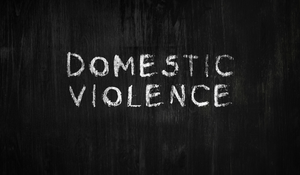 Victims' of domestic violence are frequently traumatized and perplexed, believing there is no way out of their predicament. However, many survivors have difficulty recognizing the abuse. Understanding and recognizing the various types of domestic violence is essential for leaving an abusive environment.
Victims' of domestic violence are frequently traumatized and perplexed, believing there is no way out of their predicament. However, many survivors have difficulty recognizing the abuse. Understanding and recognizing the various types of domestic violence is essential for leaving an abusive environment.
What is Domestic Violence/Abuse?
Abusive acts or behavior within the household generally includes violent acts or mistreatment of a partner, children, or spouse. Domestic abuse includes any type of verbal, sexual and physical abuse, as well as manipulation or emotional control.
Domestic violence can have long-term consequences that can last for years after the violent acts stop. Domestic abuse can occur without a physical fight and can include emotional abuse, which has a significant impact on a survivor's mental well-being.
Types of Domestic Violence/Abuse
Physical – Any actions that cause physical pain, such as hitting.
Sexual – Engaging victims in forced sexual activities. Often involves humiliating victims sexually.
Mental – These include using intimidation tactics and focusing on the vulnerabilities of the victim.
Verbal – Using abusive language, giving verbal threats, or generally making the victim feel unsafe through the use of words.
Control – Imposing their thoughts and ideas, constantly monitoring victims, monitoring style or wardrobe choices, and taking away independence.
Isolation – Preventing victims from visiting any social gatherings or meeting with friends or family.
Financial – The abusive partner has control over all the income and finances.
Causes of Domestic Violence/Abuse
Domestic abuse is not an uncontrollable action, but rather a choice that abusers frequently make. Abuse cannot be caused by the victim's actions. If you are a victim of domestic abuse, it is not your fault because you cannot force someone to hurt you in any way.
Children who witness domestic violence may come to believe that mentally or physically abusing their parents is the only way to resolve disagreements, fights, or disputes. Similarly, toxic gender roles at a young age can influence how a person views abuse later in life.
Some common factors that lead to domestic abuse include:
- Unemployment or poverty
- Alcohol or drug misuse
- Mental illnesses
- Relationship retention behavior
- Gender-based abuse
Social Workers Role-Jul-07-2022-12-07-07-85-AM.png?width=300&name=Untitled%20design%20(2)-Jul-07-2022-12-07-07-85-AM.png)
Social workers who provide family and child services struggle every day to manage caseloads involving domestic violence. FAMCare was developed in response to a need for child welfare software among Missouri agencies. Two decades later, FAMCare is a leader for agencies who want to improve how they manage their data and outcomes for society's most vulnerable.
We continue to strive, however, to be more than just another human services software company. On our blog, we publish articles that highlight and inform people about key relevant topics related to social work and social issues. We've selected a few other blogs on this topic that we believe you'll find interesting.
Child Welfare...An Overwhelming Need
How Adverse Childhood Experience Affect Long-Term Health
Child Welfare Workers...Managing For Outcomes

